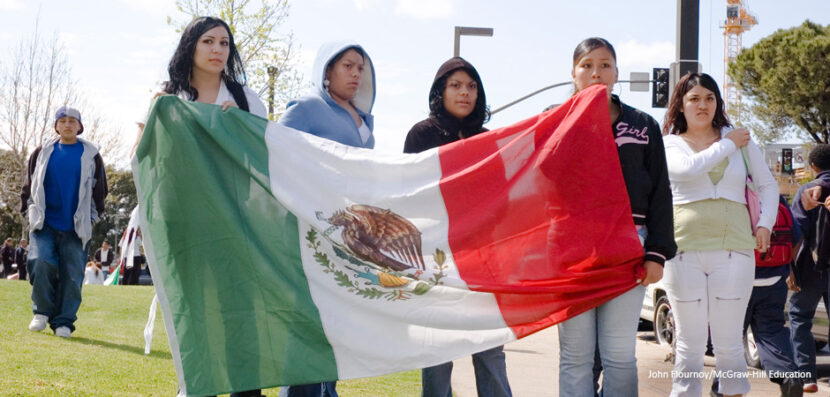- Current Events New Alabama Congressional District Selects Candidates
- Current Events Nebraska Rejects Winner-Take-All Proposal
- Citizenship Voting Under Age 18
- Citizenship Citizenship in Action
- Democratic Party Biden’s and Trump’s Recent Primary Results
- Elections Trump and Biden Win South Carolina and Michigan Primaries
The American Dreamer
Last Tuesday, the Trump administration announced the decision to end the Deferred Action for Childhood Arrivals, or DACA, program. This post examines the program, what Trump’s announcement might mean for its future, and the effect that the end of the program could have on immigration reform in the United States.
What is DACA?
DACA, which stands for Deferred Action for Childhood Arrivals, was established by President Obama in 2012. Under DACA, undocumented immigrants who were brought to the U.S. illegally as children were allowed to apply for renewable 2-year visas that allowed them to remain in the country for as long as they wanted to, safely and without fear of deportation. These immigrants, often called “Dreamers,” didn’t receive a path to citizenship. But they were able to work legally in the country, apply for a driver’s license, open a bank account, or even buy a home or start a business. They were also required to pay income taxes. Since the program took effect in 2012, nearly 800,000 undocumented immigrants have used the service.
Who Was Eligible?
In order to remain in the U.S. under DACA, a person must have arrived in the U.S. before they turned 16 and before the year 2007. They also must have been younger than 31 on June 15, 2012 (the day DACA took effect). In addition, in order to qualify, a “Dreamer” must currently be in school, or have a high school diploma, or be a military veteran. They must also have a mostly clean criminal record.
Since the program began in 2012, only 1,500 people have had their DACA privileges revoked due to criminal activity: this represents less than 0.2 percent of the Dreamer population.
Why Are Some People Opposed to it?
While most Democrats and moderate Republicans support the program, many right-leaning Republicans have argued that the Dreamer program was unconstitutional because it was handed down by President Obama as an executive order and did not receive approval from Congress. The DACA critics also worry that it would encourage more people to immigrate illegally to the U.S., knowing that there was a way for them to eventually live here legally.
Why Did Trump End the Program?
Ending DACA was one of Trump’s promises on the campaign trail. His position has wavered a bit since then. This summer, however, ten state attorneys general wrote to Trump, demanding that he end the program by September 5 or prepare for a legal challenge. The Trump administration felt that the program was unconstitutional and that they would not be able to defend it in court.
According to Trump’s announcement, he felt it was better to phase the program out over six months than to allow a federal judge to strike it down overnight. The administration emphasized that it was now up to Congress to go through the correct channels to enact legal immigration reform.
So What Happens Now?
While no new applications for DACA will be accepted or processed, current DACA recipients will still be protected until their current visas run out. However, if Congress does not come up with legislation in the next six months that will protect DACA recipients, nearly 300,000 people will be at risk for deportation in 2018, and another 320,000 in 2019.
In the meantime, fifteen states are already challenging Trump’s DACA decision in court, and companies such as Airbnb have pledged to hire lawyers and continue employing Dreamers even after their visas expire.



